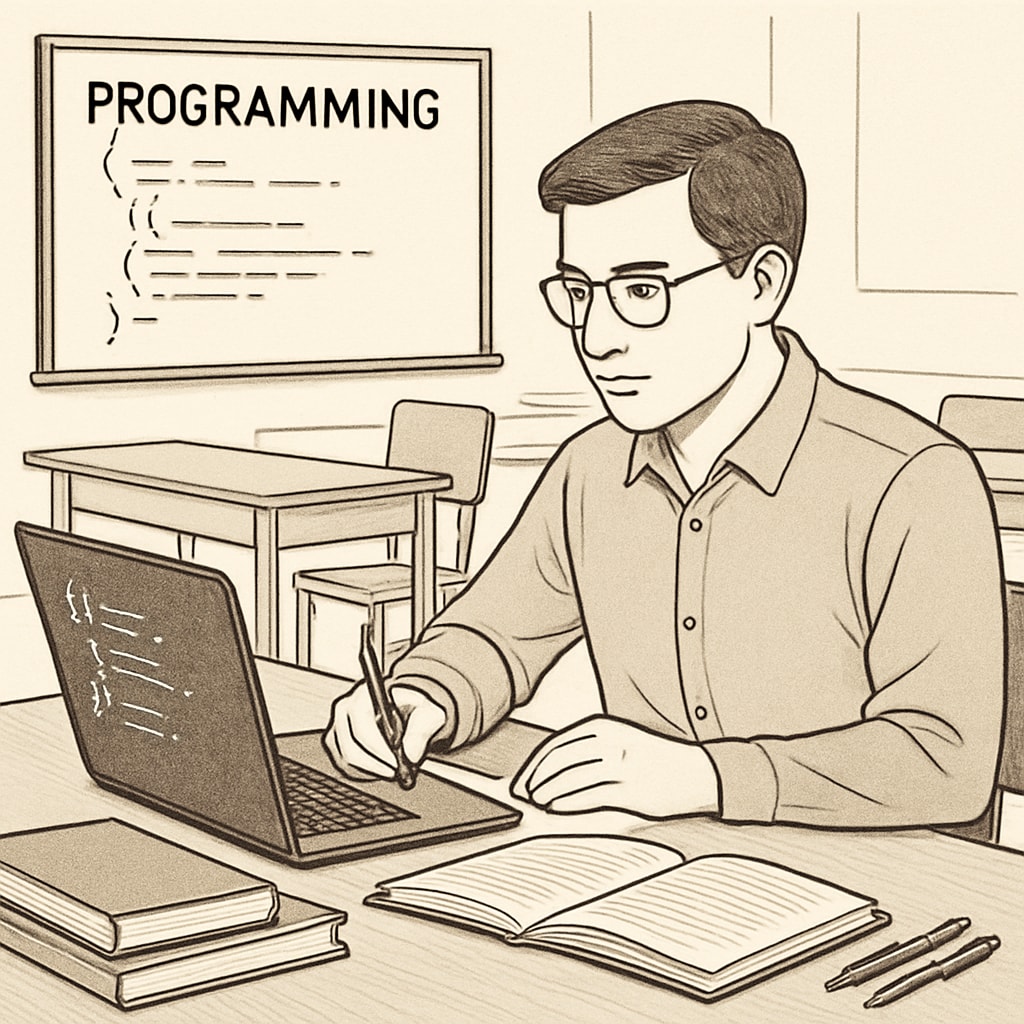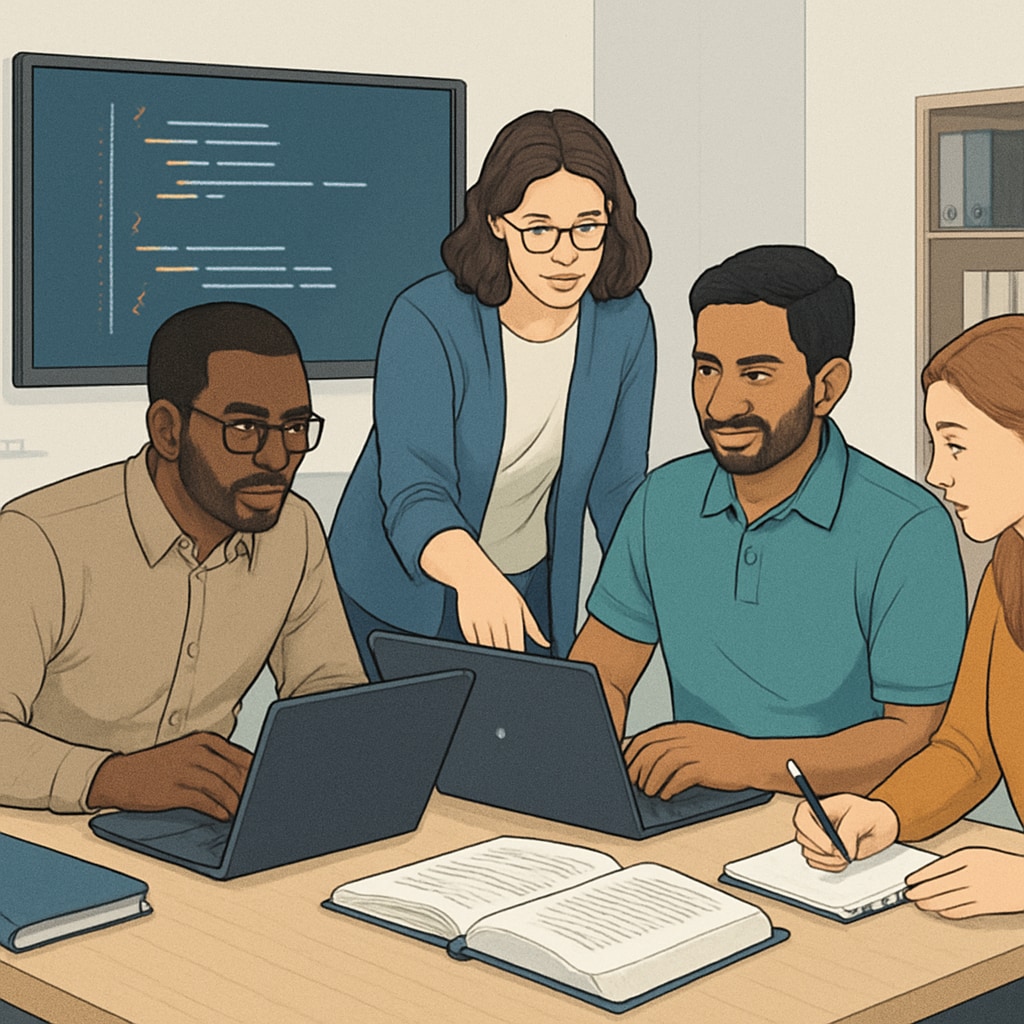Education, age, and programming are interconnected topics that demonstrate the limitless potential of lifelong learning. While the traditional path of education begins in childhood and progresses through adolescence, many adults are choosing to embark on formal education later in life. Whether motivated by career changes, personal growth, or the desire to learn new skills such as programming, adult learners are proving that education truly has no age limit. This article delves into the value, practicality, and pathways for adults who wish to pursue formal education, highlighting how their unique life experiences can be turned into learning advantages.
Why Adult Education Is Becoming Increasingly Necessary
In today’s fast-paced world, industries are evolving rapidly, and the demand for specialized skills is higher than ever. For example, programming has become one of the most sought-after abilities, as technology continues to shape our lives. Adults who missed opportunities for formal education earlier in life may now find themselves needing to upskill or reskill to remain competitive in the workforce. Additionally, education is not solely about employment—it also fosters personal growth, critical thinking, and mental stimulation.
In addition, many adults realize that their life experiences, such as problem-solving abilities, interpersonal skills, and resilience, serve as significant advantages in the classroom. These attributes can make adult learners more focused and motivated than their younger counterparts.

Feasibility of Starting Formal Education Later in Life
One of the most common concerns for adult learners is whether it’s feasible to start formal education later in life. The answer is a resounding yes. Many universities, colleges, and online platforms now offer programs specifically tailored to adult learners. Flexible schedules, part-time courses, and remote learning options make education accessible to those balancing work, family, and other commitments.
Financial aid and scholarships are also increasingly available for non-traditional students, ensuring that cost does not have to be a barrier. Furthermore, the rise of online education platforms, such as Coursera and edX, has democratized access to knowledge, allowing adults to learn skills like programming at their own pace.
How to Create a Tailored Education Pathway
For adults considering formal education, creating a personalized pathway is crucial. This begins with identifying individual goals—whether they aim to advance their career, switch industries, or simply explore new interests. For example, someone interested in programming might start with beginner-friendly courses on Python or JavaScript before exploring more advanced topics like machine learning or web development.
Here are some steps to create a tailored education pathway:
- Assess Your Goals: Pinpoint what you hope to achieve through education, whether it’s a degree, certification, or skill mastery.
- Explore Options: Research programs, universities, and online platforms that offer courses aligned with your goals.
- Leverage Existing Skills: Use your life experience, such as problem-solving or time management, to enhance your learning efficiency.
- Embrace Flexibility: Opt for programs that offer part-time, evening, or online classes to accommodate your lifestyle.
- Seek Support: Connect with mentors, peers, or online communities to stay motivated and gain insights.

The Unique Advantages of Adult Learners
Adult learners bring unique strengths to the table. Their real-world experiences often provide context and depth to their studies, making theoretical concepts easier to grasp. For example, adults learning programming may find it easier to understand practical applications, such as coding for business solutions, because they have firsthand knowledge of organizational challenges.
Moreover, adults tend to be more disciplined and goal-oriented, which helps them stay committed to their educational journeys. They also have greater emotional resilience, enabling them to handle setbacks and maintain focus on their long-term objectives.
Conclusion: Education Is a Journey, Not a Race
Starting formal education as an adult is not just possible—it’s immensely rewarding. Whether pursuing programming or any other field, adult learners can unlock new career opportunities, enhance personal growth, and discover untapped potential. Education is a lifelong journey, and age should never be a barrier to achieving your dreams.
As a result, adults who embrace learning later in life often find themselves empowered to make significant contributions to their communities and industries. Education truly has no age limit, and the pathways are as diverse and flexible as the learners themselves.
Readability guidance: Clear headings, concise paragraphs, and bulleted lists ensure this article is accessible to readers of all backgrounds. Transition words like “however,” “in addition,” and “as a result” provide smooth flow between ideas.


